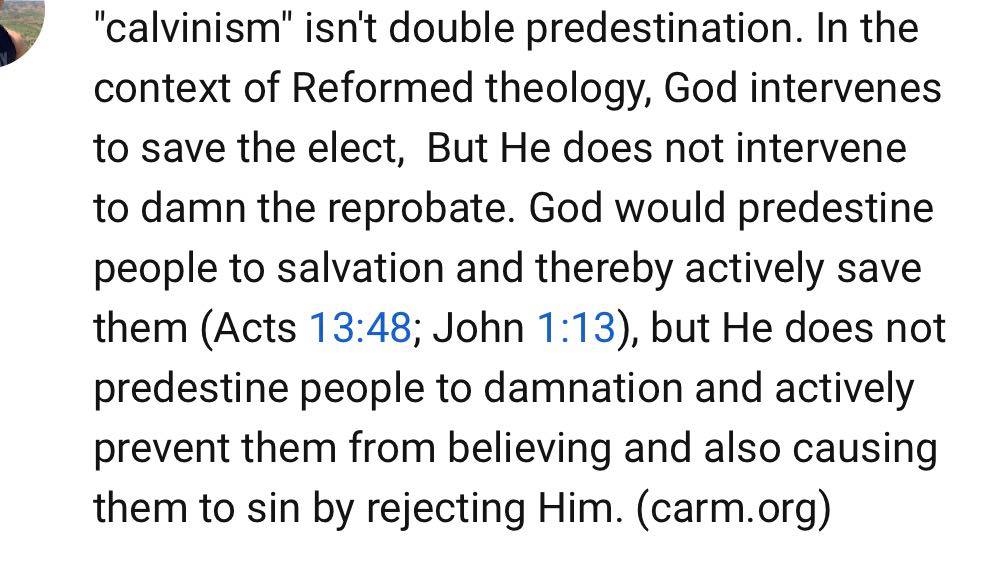From an online commenter:

If you can’t see the above as a distinction that makes no difference, then you, sir, are “blind in one eye,” as they say, “and can’t see out the other.” The problem is this. If one can only be saved by the election of God, then, by default, all those who are not elected are damned — not, mind you, through their own resistance, but rather a mere (seemingly arbitrary) choosing on the part of God. This is morally unacceptable (violates divine innocence) and Biblically absurd (remember, God wills that all be saved; thus, if that is not accomplished, there must something on the side of the creature that prevents it.). Further, if the Calvinist wants to say that the damned are damned because of their sin while simultaneously affirming the only way out of their sin is by God’s election — again, the one ultimately responsible for their damnation is God, even if he stands as the per accidens cause. The issue is only increasingly absurd when one considers the common Protestant commitment that only God can bring a person to faith — otherwise it would be exactly the caricatured “good work” Protestants so often, and unfairly, accuse Catholics of believing in! — so the line about God not actively preventing someone from believing is meaningless, because it amounts to no more than God not actively preventing a person from doing something from which they are otherwise incapable of achieving anyway.
Below are two explorations of how Catholics consider Predestination.
God’s Impassibility and Knowledge of Sin